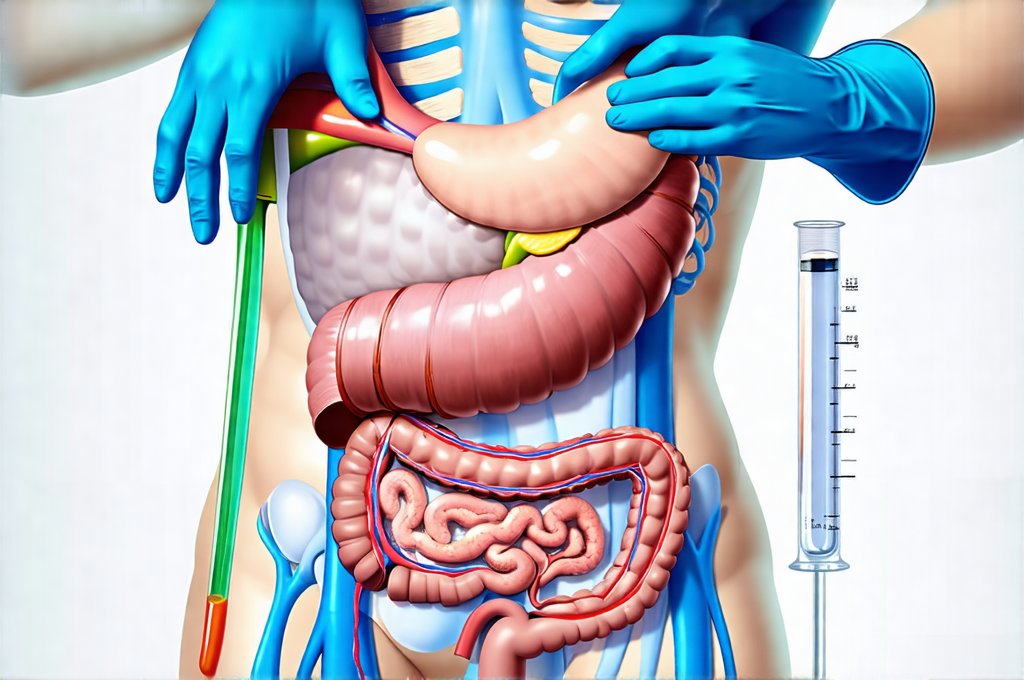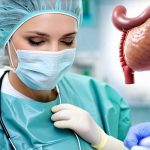Pre-surgical digestive testing isn’t typically something patients immediately think about when preparing for an operation, but it’s often a crucial component ensuring a smoother recovery and minimizing potential complications. While the focus is understandably on the surgical procedure itself, understanding how well your digestive system functions before surgery can significantly impact both immediate post-operative care and long-term health outcomes. Many surgeries, even those seemingly unrelated to the gastrointestinal tract, place stress on the body that demands optimal digestive function for healing and nutrient absorption. Identifying pre-existing digestive issues or potential vulnerabilities allows medical teams to proactively adjust perioperative management strategies – from dietary recommendations to medication choices – tailored specifically to each patient’s needs.
The need for these tests is rarely ‘one size fits all’. It depends heavily on the type of surgery planned, the individual’s medical history, and any existing symptoms they might be experiencing. For instance, someone undergoing major abdominal surgery will require a more extensive evaluation than someone having a minor orthopedic procedure. Moreover, patients with known gastrointestinal conditions like inflammatory bowel disease or irritable bowel syndrome will naturally undergo more detailed assessment. The goal isn’t to unnecessarily delay the surgical process; rather it’s about optimizing patient safety and setting the stage for optimal healing by proactively addressing potential digestive concerns. A proactive approach can also help prevent post-operative complications such as nausea, vomiting, diarrhea, constipation, or even malabsorption of vital nutrients.
Pre-Surgical Digestive Assessment: Why It Matters
The digestive system is far more than just a food processing machine; it’s intimately linked to the immune system, nutrient absorption, and overall metabolic health. Surgery, by its very nature, disrupts this delicate balance. The stress response triggered during surgery can slow down gut motility (the movement of food through the digestive tract), leading to post-operative ileus – a temporary paralysis of the intestines – which can cause discomfort and delay recovery. Furthermore, anesthesia and pain medications also frequently impact digestive function, increasing the risk of constipation or other issues. A thorough pre-surgical assessment identifies individuals at higher risk for these complications, allowing for interventions like bowel preparation protocols, dietary modifications, or even adjustments to anesthetic plans.
It’s important to recognize that some digestive problems are silent. A patient might not be experiencing obvious symptoms but still have underlying issues like mild malabsorption due to celiac disease or early stages of inflammatory bowel disease. These conditions can significantly compromise healing and increase the risk of infection after surgery. Therefore, screening tests aren’t always about addressing current complaints; they’re often about identifying potential vulnerabilities that could become problematic during and after the surgical process. The assessment is tailored; a patient undergoing bariatric surgery, for example, will have different digestive testing needs than someone having a knee replacement. Understanding your baseline digestive health allows for more informed post-operative care planning. If a surgeon knows a patient has a history of slow gastric emptying, they can adjust the initial diet to prevent nausea and vomiting. If malabsorption is suspected, nutritional support might be incorporated into the recovery plan. This level of personalized care significantly improves the overall surgical experience.
Finally, consider how food energy patterns can impact your body’s ability to heal after a procedure.
Common Digestive Tests Before Surgery
The specific tests ordered will vary based on individual factors, but some are more commonly utilized than others. A starting point often involves a comprehensive review of medical history and symptoms, followed by basic blood work to assess nutritional status (albumin levels, pre-albumin, vitamin D) and identify signs of inflammation or infection. Beyond this initial assessment, several specialized tests may be considered:
- Stool Tests: These can screen for infections (like C. difficile), parasites, and hidden blood in the stool, which could indicate underlying GI bleeding. They can also assess fecal elastase levels to evaluate pancreatic function.
- Hydrogen Breath Test: Used to diagnose lactose intolerance, small intestinal bacterial overgrowth (SIBO), or fructose malabsorption.
- Endoscopy/Colonoscopy: While not routinely performed for all surgeries, these procedures are essential for patients with a history of GI symptoms or concerns about underlying conditions like ulcers, polyps, or inflammatory bowel disease. They provide direct visualization of the digestive tract and allow for biopsies if needed.
- Gastric Emptying Study: This measures how quickly food leaves the stomach. It’s particularly important for patients undergoing abdominal surgery where delayed gastric emptying could increase the risk of nausea and vomiting post-operatively.
Understanding Specific Tests: Stool Analysis & Hydrogen Breath Testing
Stool analysis is a relatively non-invasive test providing valuable insights into digestive health. A typical stool panel will assess several parameters including: – Fecal occult blood (FOB) – indicates possible bleeding in the GI tract. – White blood cells – suggest inflammation or infection. – Fat content – can help diagnose malabsorption issues. – Microscopic parasites and ova – identifies parasitic infections. – Culture for bacterial pathogens like C. difficile. The results of a stool analysis can guide further investigations or prompt treatment if an infection is detected. It’s also important to note that dietary factors can influence the accuracy of some stool tests, so following pre-test instructions carefully is crucial.
Hydrogen breath testing offers a different but equally useful approach. This test relies on the principle that undigested carbohydrates are fermented by bacteria in the small intestine, producing hydrogen gas. The amount of hydrogen exhaled after consuming a specific carbohydrate (like lactose or fructose) indicates whether the body can properly digest it. For example, a high hydrogen level after ingesting lactose suggests lactose intolerance. SIBO is also often detected through this method; excess bacterial fermentation in the small intestine leads to increased hydrogen production. Preparation for a breath test typically involves following a specific diet for 24-48 hours prior to the test, avoiding certain foods that can interfere with results. Meal timelines are important even when preparing for these tests!
These tests, while seemingly simple, provide crucial information about digestive function and can help identify underlying issues that might otherwise go unnoticed before surgery. This allows for proactive intervention and optimization of perioperative care.
Deep Dive: Endoscopy & Colonoscopy – When are They Necessary?
Endoscopy (specifically upper endoscopy or esophagogastroduodenoscopy – EGD) and colonoscopy aren’t routine pre-surgical tests, but they become essential in specific circumstances. An EGD involves inserting a thin, flexible tube with a camera attached down the esophagus, stomach, and duodenum (the first part of the small intestine). It’s used to diagnose conditions like ulcers, gastritis, esophagitis, and Barrett’s esophagus, as well as to obtain biopsies for further analysis. Colonoscopy, similarly, involves inserting a flexible tube with a camera into the rectum to visualize the entire colon. It’s primarily used to screen for colorectal cancer, polyps (which can be precancerous), and inflammatory bowel disease.
The decision to perform either of these procedures pre-surgery is typically based on: 1. Patient history: A prior diagnosis of GI symptoms like chronic heartburn, abdominal pain, or changes in bowel habits. 2. Risk factors: Family history of colorectal cancer or inflammatory bowel disease. 3. Type of surgery: Surgeries involving the digestive tract itself (e.g., colectomy) almost always require pre-operative colonoscopy to rule out underlying issues. It’s important to remember that these procedures require bowel preparation, which can be uncomfortable, but is essential for clear visualization and accurate results.
While invasive, endoscopy and colonoscopy provide invaluable diagnostic information, potentially preventing future complications and ensuring a safer surgical experience. Biopsies taken during these procedures can also help identify underlying conditions requiring treatment before proceeding with surgery. It’s vital to address potential issues, so it’s good to know GERD symptoms to discuss with your doctor.
Gastric Emptying Study: Assessing Stomach Function
A gastric emptying study (GES) assesses the rate at which food empties from the stomach into the small intestine. This is particularly important for patients undergoing abdominal surgery as delayed gastric emptying – gastroparesis – can significantly increase the risk of post-operative nausea, vomiting, and even aspiration pneumonia. The test typically involves consuming a meal containing a radioactive substance, then tracking its movement through the digestive tract using a special scanner. The amount of radioactivity detected in the stomach over time determines the gastric emptying rate.
There are different methods for performing GES; some utilize solid food while others use liquid meals. Patients must follow specific dietary guidelines before the test, typically involving fasting for several hours and avoiding certain medications that can affect gastric motility. Results are often compared to normal values to determine if gastroparesis is present. If delayed emptying is detected, interventions like prokinetic medications (to speed up stomach emptying) or dietary modifications may be recommended before surgery. Prep-ahead meals can be useful for these dietary changes.
A GES isn’t always necessary but is crucial for patients with pre-existing diabetes (which can cause gastroparesis), those experiencing unexplained nausea and vomiting, or those undergoing extensive abdominal procedures where post-operative digestive complications are a significant concern. It allows medical teams to proactively address potential issues and optimize patient care both during and after the surgical process. Comforting meal textures can also help mitigate these effects.
Ultimately, pre-surgical digestive testing is about minimizing risk and maximizing the chances of a smooth recovery. It’s a proactive step that demonstrates a commitment to holistic patient care, acknowledging the interconnectedness between the digestive system and overall health. By identifying potential vulnerabilities before surgery, medical teams can tailor treatment plans, optimize nutritional support, and ultimately improve patient outcomes.


















